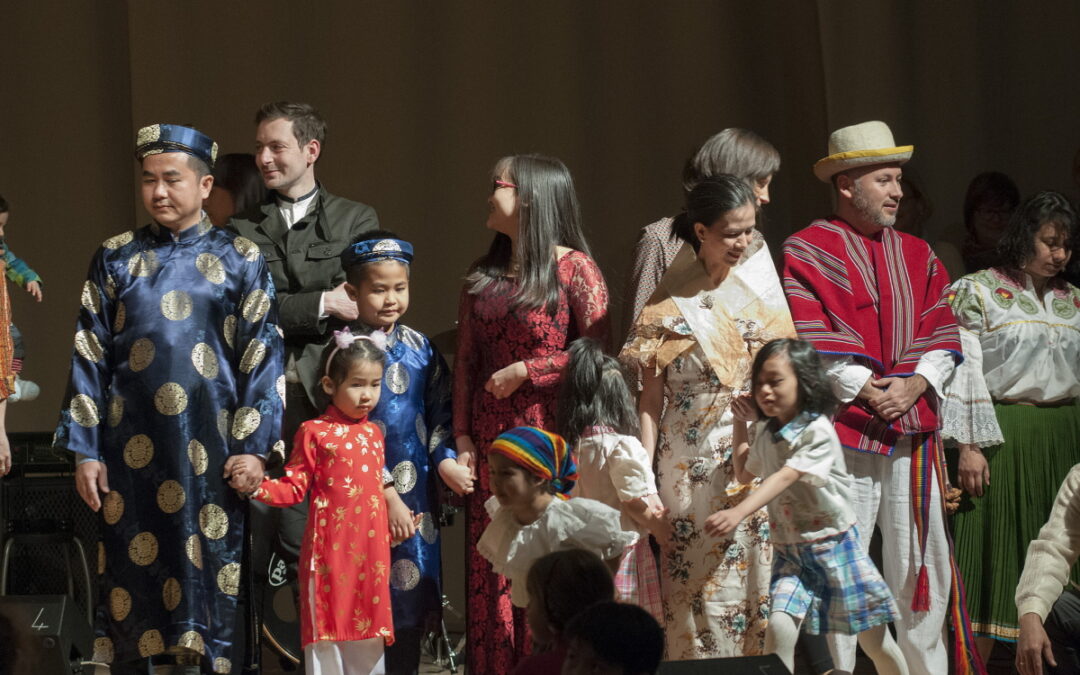
Chiara Lubich sheds light on family life
Copyright CSC Audiovisivi – Caris Mendes

Copyright CSC Audiovisivi – Caris Mendes
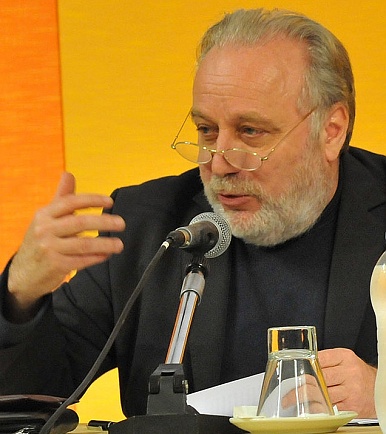
 A missionary Church that lives the Gospel and shares its life with the people of God: this is the direction his pontificate is moving towards, expressed clearly and prophetically in the Evangelii Gaudium. “This regards the progressive and hard-fought awareness, Piero Coda explains, “in line with the Church’s way of being present in the world, and its mission which has to be, from top to bottom, measured on Jesus’s style.” Four years after his election, we still have not recovered from the surprise his words, style and gestures arouse in us. We find it hard to realize what is happening. With radical clarity, he evidently inspires his ministry to live the “sine glossa” – with comments and compromises. We know that the formula is that of Francis of Assisi, which undoubtedly is why Jorge Maria Bergoglio felt God’s inspiration to take his name in this particular moment of the world’s history: to declare the spirit with which he wants to animate his service as the Bishop of Rome. He says this formula orders us not to measure the Gospel according to our own yardstick but to open our hearts and minds to the endless measures set by the Gospel. But isn’t this what the Church of all time is called to? So what novelty is there? To tell the truth, in every epoch conversion and reform assume a tone and pursue a path which, being the same as always, are those and only those that respond to the queries and wounds of the time we are called to live. If the conversion we were asked of yesterday, is in a sense, the very same as that which we are called to today, and yet today, it is something else compared to yesterday under the profile of its historical expression and implementation, it is because we are called to respond to God’s voice that reminds us precisely of those words of Jesus which the Spirit wishes to highlight and make us concretise now. It will be a response to the challenges and wounds of the present. It is a matter of a progressive and hard-fought awareness, according to which the style (that is, the content and form together) of the Church’s presence in the world and its mission have precisely been measured from top to bottom, according to the style of Jesus. I was really deeply impressed by the words which Romana Guarneri with her distinctive sense of history, said to me in a feeble voice just before she died: “Christianity still has to blossom.” I think that this affirmation can be interpreted in the sense that the time has come, in which from the roots of faith in Christ, a fresh, innovative flower can and must bloom, and which can amaze us again with its rare beauty, and give us new life. What in the end does 2,000 years of history mean? Has not Christianity expressed itself only in the existence and philosophy of Europe and the West? Of course, the expressions have been providential and precious, but other than definitive and absolute. In all that Pope Francis has put in motion in the Church, the real issue at stake is huge. It may even be decisive for the Church in the unprecedented season awaiting it. Vatican II was not only a point of arrival, but more of a point of departure. None of the extraordinary heritage of Tradition has been lost, but all has to be reset in a disarmed listening to the Holy Spirit’s inspiration today. What God expects of the Church today – he said, not by chance on the 50th anniversary of the institution of the Bishops’ Synod, is enclosed in one word: synod. It is a walking together of men, women, youths, adults, and the elderly. It includes the various vocations and charisms in the Church, and different Churches, cultures religions, and visions of the world. All are involved – no one is excluded, starting from those who in some way are discarded. The mystical sense of “we” is the perfume, truth and measure of justice of a Church that “goes forth.” It is the yeast of that new cultural paradigm of that urgently postulated and invoked epochal change we are called to be the protagonists of, under penalty of the collapse and disintegration of the human adventure. Four years from his election we can say with simplicity, conviction and gratitude: Pope Francis is a gift for all of us, not only for the Catholics. This is because he urges us to become men and women that as the people of God, choose the morning star of the pathway, and as our existential and liberating code, nothing else but the beautiful, good, and joyful news of the Gospel. It will light up the fire – today as 2000 years ago – in the heart of the world.
A missionary Church that lives the Gospel and shares its life with the people of God: this is the direction his pontificate is moving towards, expressed clearly and prophetically in the Evangelii Gaudium. “This regards the progressive and hard-fought awareness, Piero Coda explains, “in line with the Church’s way of being present in the world, and its mission which has to be, from top to bottom, measured on Jesus’s style.” Four years after his election, we still have not recovered from the surprise his words, style and gestures arouse in us. We find it hard to realize what is happening. With radical clarity, he evidently inspires his ministry to live the “sine glossa” – with comments and compromises. We know that the formula is that of Francis of Assisi, which undoubtedly is why Jorge Maria Bergoglio felt God’s inspiration to take his name in this particular moment of the world’s history: to declare the spirit with which he wants to animate his service as the Bishop of Rome. He says this formula orders us not to measure the Gospel according to our own yardstick but to open our hearts and minds to the endless measures set by the Gospel. But isn’t this what the Church of all time is called to? So what novelty is there? To tell the truth, in every epoch conversion and reform assume a tone and pursue a path which, being the same as always, are those and only those that respond to the queries and wounds of the time we are called to live. If the conversion we were asked of yesterday, is in a sense, the very same as that which we are called to today, and yet today, it is something else compared to yesterday under the profile of its historical expression and implementation, it is because we are called to respond to God’s voice that reminds us precisely of those words of Jesus which the Spirit wishes to highlight and make us concretise now. It will be a response to the challenges and wounds of the present. It is a matter of a progressive and hard-fought awareness, according to which the style (that is, the content and form together) of the Church’s presence in the world and its mission have precisely been measured from top to bottom, according to the style of Jesus. I was really deeply impressed by the words which Romana Guarneri with her distinctive sense of history, said to me in a feeble voice just before she died: “Christianity still has to blossom.” I think that this affirmation can be interpreted in the sense that the time has come, in which from the roots of faith in Christ, a fresh, innovative flower can and must bloom, and which can amaze us again with its rare beauty, and give us new life. What in the end does 2,000 years of history mean? Has not Christianity expressed itself only in the existence and philosophy of Europe and the West? Of course, the expressions have been providential and precious, but other than definitive and absolute. In all that Pope Francis has put in motion in the Church, the real issue at stake is huge. It may even be decisive for the Church in the unprecedented season awaiting it. Vatican II was not only a point of arrival, but more of a point of departure. None of the extraordinary heritage of Tradition has been lost, but all has to be reset in a disarmed listening to the Holy Spirit’s inspiration today. What God expects of the Church today – he said, not by chance on the 50th anniversary of the institution of the Bishops’ Synod, is enclosed in one word: synod. It is a walking together of men, women, youths, adults, and the elderly. It includes the various vocations and charisms in the Church, and different Churches, cultures religions, and visions of the world. All are involved – no one is excluded, starting from those who in some way are discarded. The mystical sense of “we” is the perfume, truth and measure of justice of a Church that “goes forth.” It is the yeast of that new cultural paradigm of that urgently postulated and invoked epochal change we are called to be the protagonists of, under penalty of the collapse and disintegration of the human adventure. Four years from his election we can say with simplicity, conviction and gratitude: Pope Francis is a gift for all of us, not only for the Catholics. This is because he urges us to become men and women that as the people of God, choose the morning star of the pathway, and as our existential and liberating code, nothing else but the beautiful, good, and joyful news of the Gospel. It will light up the fire – today as 2000 years ago – in the heart of the world.
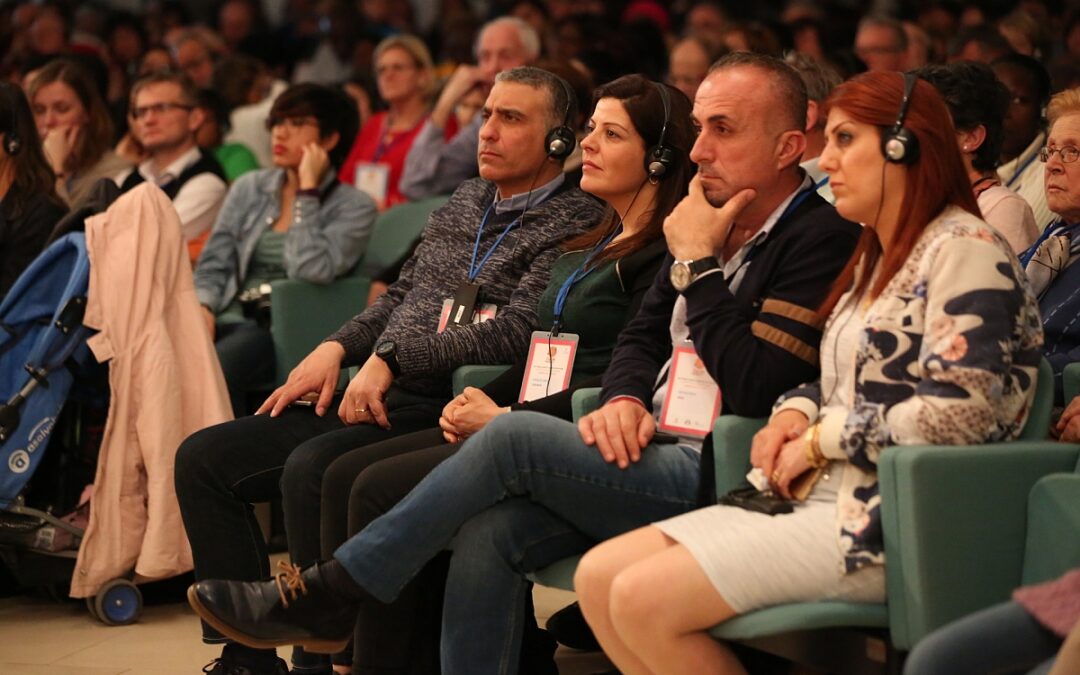
Dated March 9, 2017 the Official Edict from the Bishop of Albano, Italy, Marcello Semeraro: “His authentic Christian witness is a constant invitation to the collective holiness, which finds maximum expression in reciprocal assistance while following the same path of holiness. Becoming saints out of love for one’s neighbours.” The Volunteers of God of the Focolare Moviment joyfully welcome the bishop’s initiative. Read a short biography here Contact: postulazionedomenicomangano@focolare.org
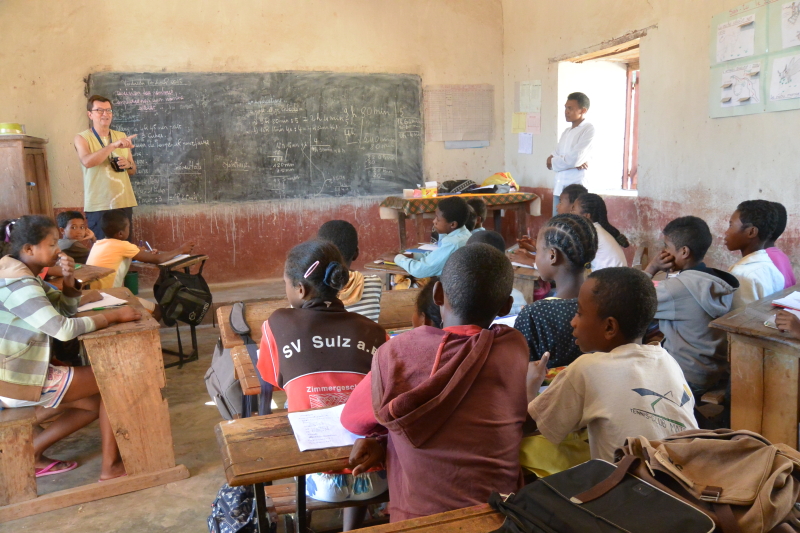
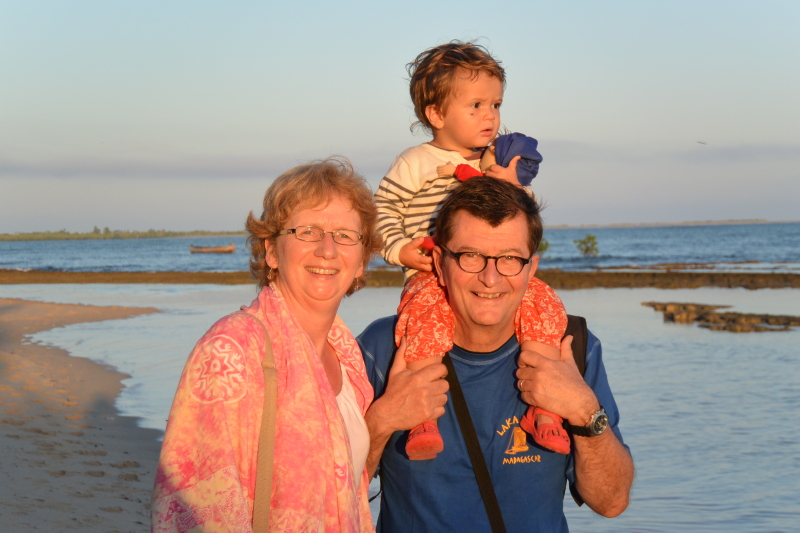 The long-awaited time for retirement arrives for Eric, who lives in Belgium and has spent 37 years teaching at an elementary school. After working for a living with the children, Eric asks what could be done for those who did not receive an education, for those who live in difficult situations and in distant lands. After all, all children are equal, have the same curious eyes and the same infectious laugh. This is how, together with his wife Lut, he decides to commit his free time to solidarity action. Eric, already a supporter of a child, began to promote the AFNonlus programs for long-distance support. With the help of the youngest of his daughters, Maria-Laetitia, he involved friends and acquaintances, helping to make more alive in each one the need to also donate a small sum for a noble cause. “For us, as for many people, the situation of many children in the world is unbearable: they are the first victims of all violence and poverty,” says Eric. The couple receive many opportunities and experiences for thought: a young father from Romania said that thanks to long-distance support he was able to finish his studies, which have allowed him to get a job and start a family. A woman who has lived for many years in Congo, being in contact with the Petite Flamme project has been able experience first-hand the help that long-distance support offers children. These testimonials feed in Eric and Lut the certainty of having committed themselves to something big.
The long-awaited time for retirement arrives for Eric, who lives in Belgium and has spent 37 years teaching at an elementary school. After working for a living with the children, Eric asks what could be done for those who did not receive an education, for those who live in difficult situations and in distant lands. After all, all children are equal, have the same curious eyes and the same infectious laugh. This is how, together with his wife Lut, he decides to commit his free time to solidarity action. Eric, already a supporter of a child, began to promote the AFNonlus programs for long-distance support. With the help of the youngest of his daughters, Maria-Laetitia, he involved friends and acquaintances, helping to make more alive in each one the need to also donate a small sum for a noble cause. “For us, as for many people, the situation of many children in the world is unbearable: they are the first victims of all violence and poverty,” says Eric. The couple receive many opportunities and experiences for thought: a young father from Romania said that thanks to long-distance support he was able to finish his studies, which have allowed him to get a job and start a family. A woman who has lived for many years in Congo, being in contact with the Petite Flamme project has been able experience first-hand the help that long-distance support offers children. These testimonials feed in Eric and Lut the certainty of having committed themselves to something big.  “Our dream,” says Eric, “was to find at least 10 people over the course of 2016 who would take the step of supporting a child. It seemed like a mountain because in three years we’d found only two supporters (namely us and my father!).” But clearly the commitment and time spent promoting the news from the various programmes paid off. A couple decides to support a Haitian child and to continue the action of solidarity. Even Eric and Lut’s children want to do their bit. As well a man with a friend of his, a nephew who lives in Switzerland, glad to be able to ”do something for humanity”, a young couple of newlyweds, a businessman who wants to support a child with his company, a young dad, and Lut’s parents who want to support a child while living in a nursing home. And so on, so many beautiful experiences around this kind of support! The projects for disadvantaged children around the world are moving forward thanks to supporters, their sensitivity and their support. In addition to Eric and Lut, we also find Enzo and Fiorenza, whose support has accompanied Jessica, a Brazilian girl, for most of her life. But assuming a long- distance support means above all to create a bond with the child, a thread of solidarity that runs through the world to connect distant countries. That’s why now as an adult Jessica wanted to contact her supporters for Christmas, offering them the best gift that can be placed under the tree: the gratitude for a life redeemed from poverty. Source: AFNonlus – Spazio Famiglia
“Our dream,” says Eric, “was to find at least 10 people over the course of 2016 who would take the step of supporting a child. It seemed like a mountain because in three years we’d found only two supporters (namely us and my father!).” But clearly the commitment and time spent promoting the news from the various programmes paid off. A couple decides to support a Haitian child and to continue the action of solidarity. Even Eric and Lut’s children want to do their bit. As well a man with a friend of his, a nephew who lives in Switzerland, glad to be able to ”do something for humanity”, a young couple of newlyweds, a businessman who wants to support a child with his company, a young dad, and Lut’s parents who want to support a child while living in a nursing home. And so on, so many beautiful experiences around this kind of support! The projects for disadvantaged children around the world are moving forward thanks to supporters, their sensitivity and their support. In addition to Eric and Lut, we also find Enzo and Fiorenza, whose support has accompanied Jessica, a Brazilian girl, for most of her life. But assuming a long- distance support means above all to create a bond with the child, a thread of solidarity that runs through the world to connect distant countries. That’s why now as an adult Jessica wanted to contact her supporters for Christmas, offering them the best gift that can be placed under the tree: the gratitude for a life redeemed from poverty. Source: AFNonlus – Spazio Famiglia

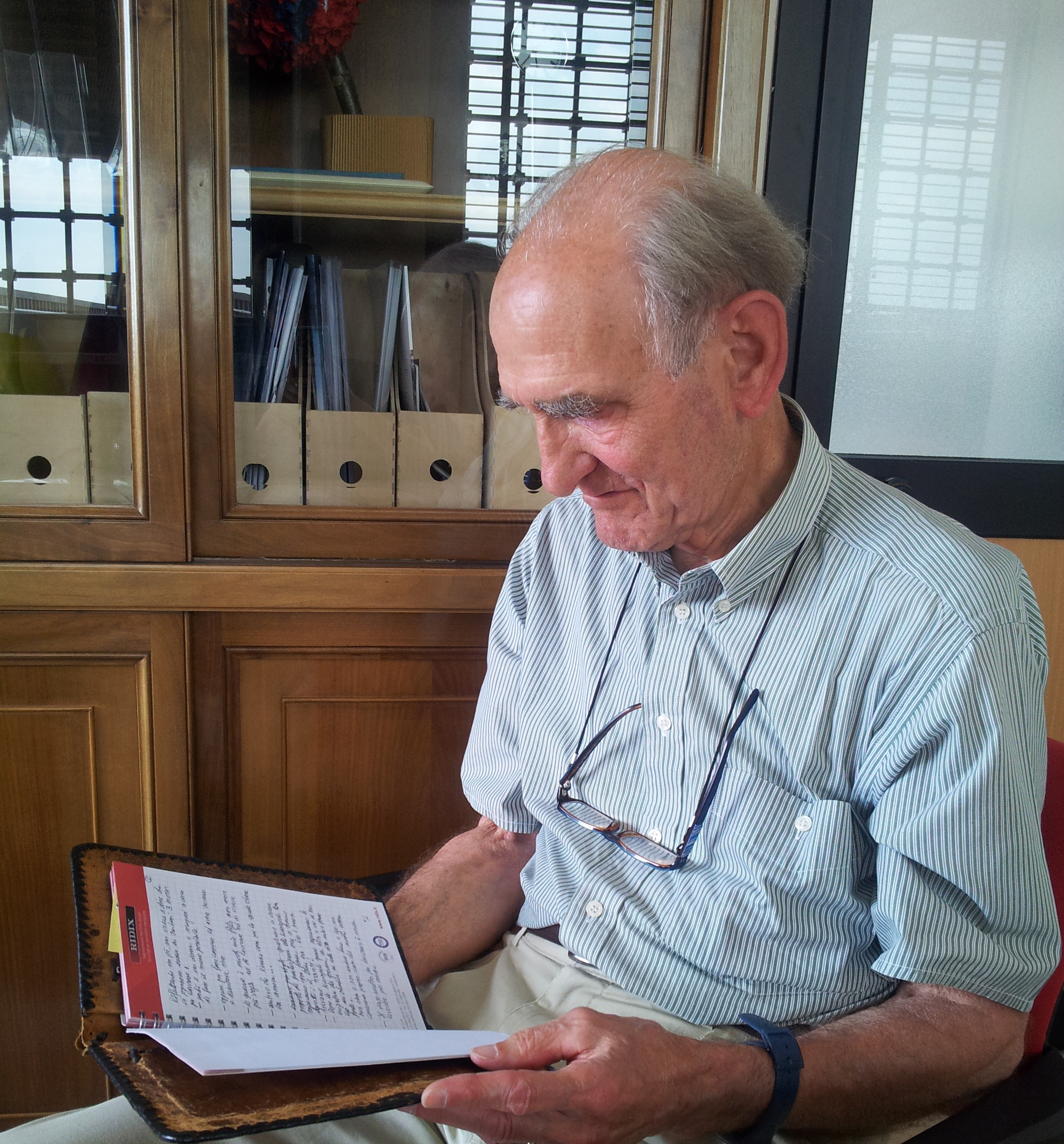 While waiting to meet Pope Francis in Paul VI Hall the anticipation of the 1200 members of the Economy of Communion (EoC) was calmed by several testimonies from entrepreneurs including Clem Fritschi who began like this: “Mine is not the story of a successful man of business, but a love story. After finishing my studies in Switzerland I worked as a warehouseman in London, to learn English. That’s where I met Margherita. We fell in love and, since she’s from Turin, I decided to find work in Italy. Two years later we got married and had two children. All of a sudden the company I was working for decided to close down. Then a few colleagues and I put together our settlements in order to keep the place going.” That’s how Ridix began, a company that has been offering cutting-edge products on the Italian market in the field of precision engineering since 1969.
While waiting to meet Pope Francis in Paul VI Hall the anticipation of the 1200 members of the Economy of Communion (EoC) was calmed by several testimonies from entrepreneurs including Clem Fritschi who began like this: “Mine is not the story of a successful man of business, but a love story. After finishing my studies in Switzerland I worked as a warehouseman in London, to learn English. That’s where I met Margherita. We fell in love and, since she’s from Turin, I decided to find work in Italy. Two years later we got married and had two children. All of a sudden the company I was working for decided to close down. Then a few colleagues and I put together our settlements in order to keep the place going.” That’s how Ridix began, a company that has been offering cutting-edge products on the Italian market in the field of precision engineering since 1969.  “In 1974 my family and I took part in a Focolare Meeting in Bergamo, Italy. It wasn’t a happy time, we had just lost our first son10 years old, in an accident. The encounter with the spirituality of unity was like a cure-all for us, to the point that even amidst our tears Margherita and I said to each other that we had met God-Love. We went home with only one word in mind, the verb: LOVE. Love everyone, love even at work. One of the young men that I met in Bergamo asked if there would be a position for him in the business I started. That’s how Ugo, then Paolo, and then Michele got on board. All three became associates. The company slogan is: “Seek first the Kingdom of God and his riteousness, and the rest will be given to you as well.” All of us want our relationship to be deep and sincere. We allow each other to make mistakes and to argue, but to experience the presence of God we also have to hurry ourselves to recompose unity with one another. The success is overwhelming: Today there are 9 associates and 70 collaborators, many highly qualified in selling, contract signing, commissioning, maintenance and management. We have an annual turnover of more than 30 million Euros. Loving one another and trying to love everyone, even our enemies: that’s the success of Ridix that I will try to describe with a few short phrases.
“In 1974 my family and I took part in a Focolare Meeting in Bergamo, Italy. It wasn’t a happy time, we had just lost our first son10 years old, in an accident. The encounter with the spirituality of unity was like a cure-all for us, to the point that even amidst our tears Margherita and I said to each other that we had met God-Love. We went home with only one word in mind, the verb: LOVE. Love everyone, love even at work. One of the young men that I met in Bergamo asked if there would be a position for him in the business I started. That’s how Ugo, then Paolo, and then Michele got on board. All three became associates. The company slogan is: “Seek first the Kingdom of God and his riteousness, and the rest will be given to you as well.” All of us want our relationship to be deep and sincere. We allow each other to make mistakes and to argue, but to experience the presence of God we also have to hurry ourselves to recompose unity with one another. The success is overwhelming: Today there are 9 associates and 70 collaborators, many highly qualified in selling, contract signing, commissioning, maintenance and management. We have an annual turnover of more than 30 million Euros. Loving one another and trying to love everyone, even our enemies: that’s the success of Ridix that I will try to describe with a few short phrases.
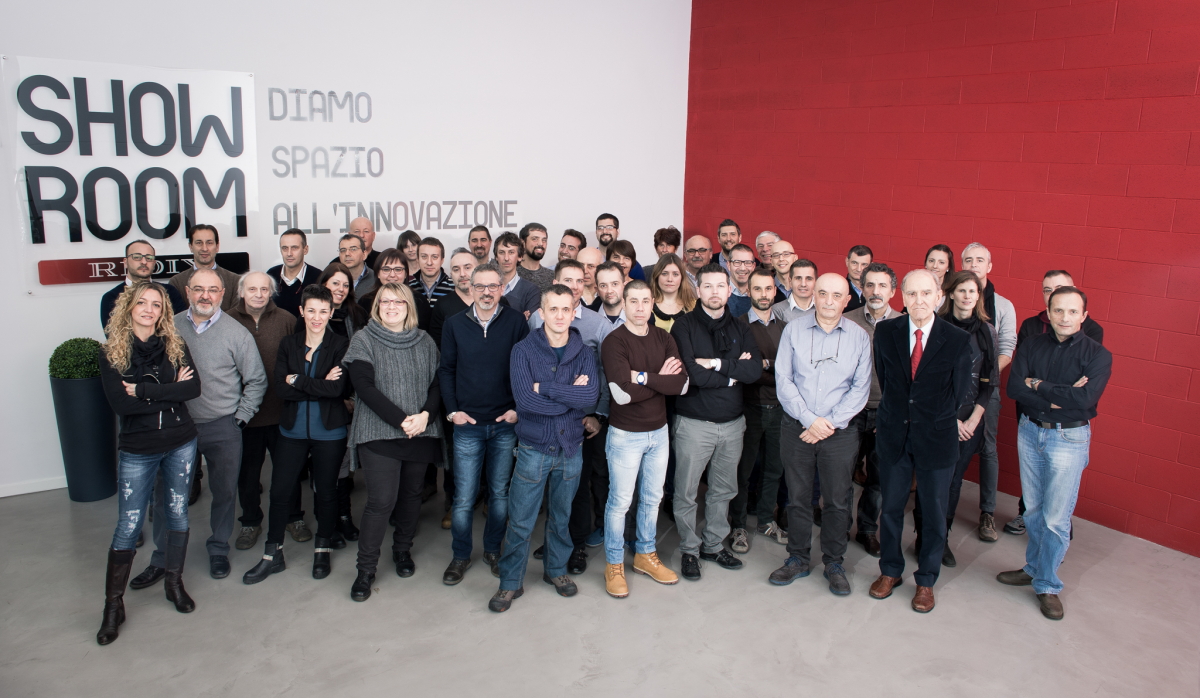 Inclusion of people affected by addiction or in difficult relationship problems, people from immimgrant backgrounds and from poor countries.
Inclusion of people affected by addiction or in difficult relationship problems, people from immimgrant backgrounds and from poor countries.One part of the profit is donated to the poor. Thanks to this sharing, Muslim teachers on the outskirts of Tangeri, Morocco opened a kindergarten in a garage that allowed 40 children to be ready for primary school. The secret to our success? Communion. Which means transparency, sincerity, truth even when it is hard to say, devoting time to building positive relationships. The “promised land” we’re all heading for is a company where everyone is happy. Happy employees because the company is healty and the atmosphere collaborative. Happy clients because of just relationship betewen quality and product pricing, and purchasing services. Happy providers, because of long and prolific collaboration. We may be tired at the end of a day, but we’re happy and satisfied because we’ve done our job well.
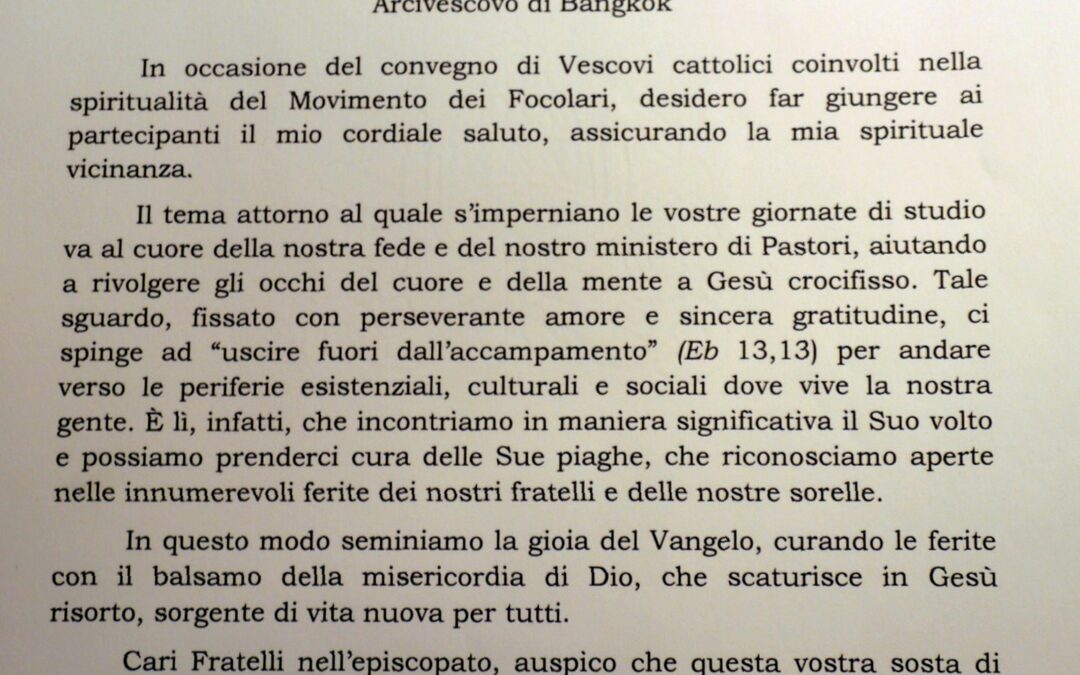
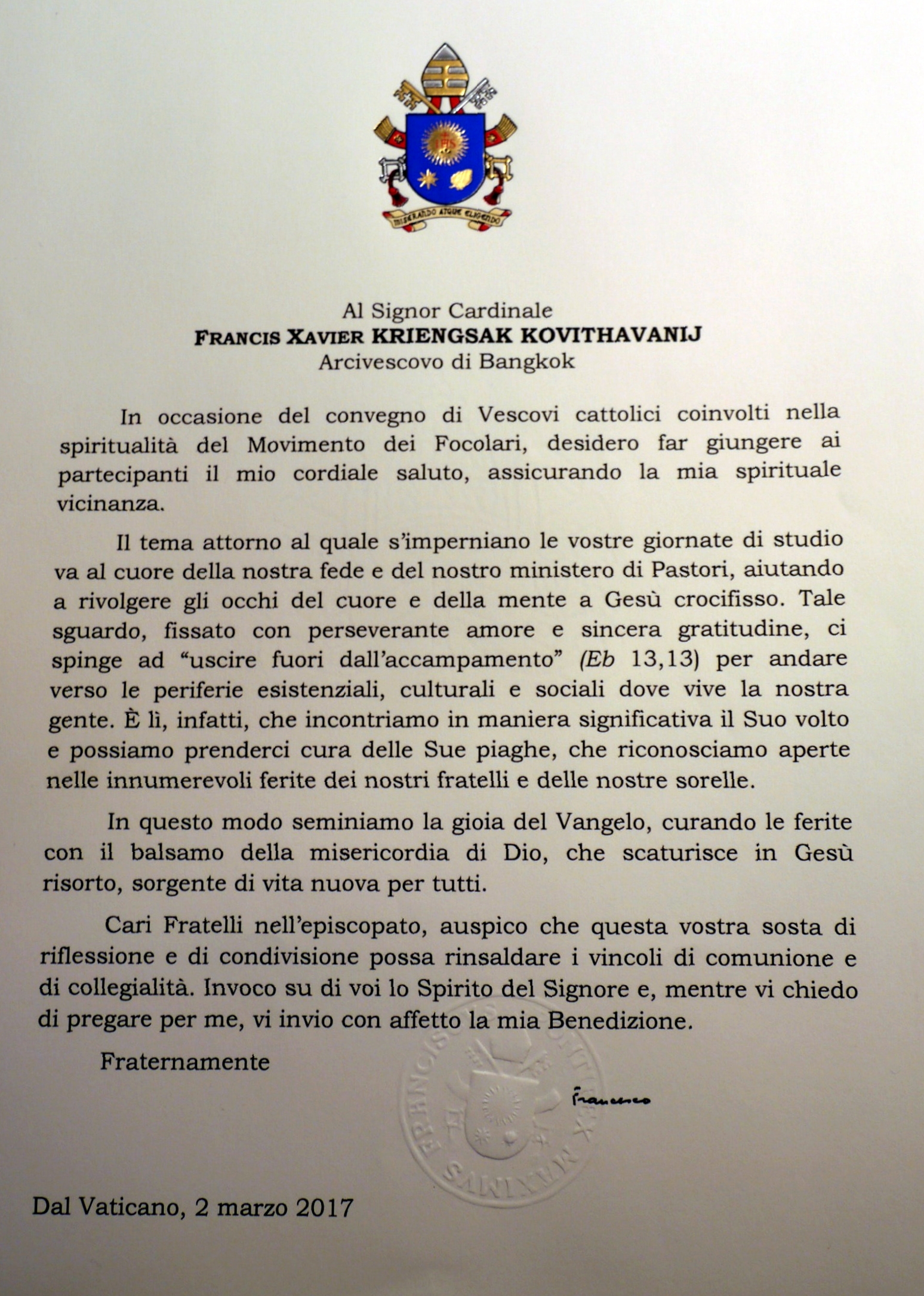 The conference of Bishop Friends of the Focolare, which is currently underway at the Mariapolis Centre of Castel Gandolfo, is titled: “If the world only knew him…” referring to the mystery of the abandonment of Jesus on the cross as the key to encounter among cultures. In a hand-signed message Pope Francis wished to express his closeness and encouragement to entering more deeply into this topic that urges us to “go towards the existential, cultural and social peripheries” and to “strengthen the bonds of communion and collegiality.” The message, which is addressed to the moderator of the gathering, Archbishop Francis X. Kovithavanij, had great impact and aroused much gratitude among the bishops. _____________________________________
The conference of Bishop Friends of the Focolare, which is currently underway at the Mariapolis Centre of Castel Gandolfo, is titled: “If the world only knew him…” referring to the mystery of the abandonment of Jesus on the cross as the key to encounter among cultures. In a hand-signed message Pope Francis wished to express his closeness and encouragement to entering more deeply into this topic that urges us to “go towards the existential, cultural and social peripheries” and to “strengthen the bonds of communion and collegiality.” The message, which is addressed to the moderator of the gathering, Archbishop Francis X. Kovithavanij, had great impact and aroused much gratitude among the bishops. _____________________________________
To Cardinal
FRANCIS XAVIER KRIENGSAK KOVITHAVANIJ
Archbishop of Bangkok
“On the occasion of the meeting of Catholic Bishops engaged with the spirituality of the Focolare Movement, I wish to extend my cordial greetings to all of you, assuring you of my spiritual closeness. The theme around which your days together revolve goes to the very heart of our faith and ministry as pastors, helping to turn the eyes of the heart and of the mind to Jesus crucified. This gaze, fixed with persevering love and sincere gratitude, urges us to “go to him outside the camp” (Heb 13:13), to the existential, cultural and social peripheries where our people live. It is there, in fact, that we meet His face in a way that is significant, and take care of His wounds which we find gaping in the countless wounds of our brothers and sisters. In this way we will sow the joy of the Gospel, caring for the wounds with the balm of God’s mercy which flows from the Risen Jesus, who is the source of life for everybody. Dear Brothers in the episcopate, I wish you that this pause for reflection and sharing may strengthen the bonds of communion and collegiality. I invoke the Spirit of the Lord upon you and, as I ask you to pray for me, I affectionately extend my Blessing to you.”
Fraternally,
Francis
Vatican, 2 March 2017
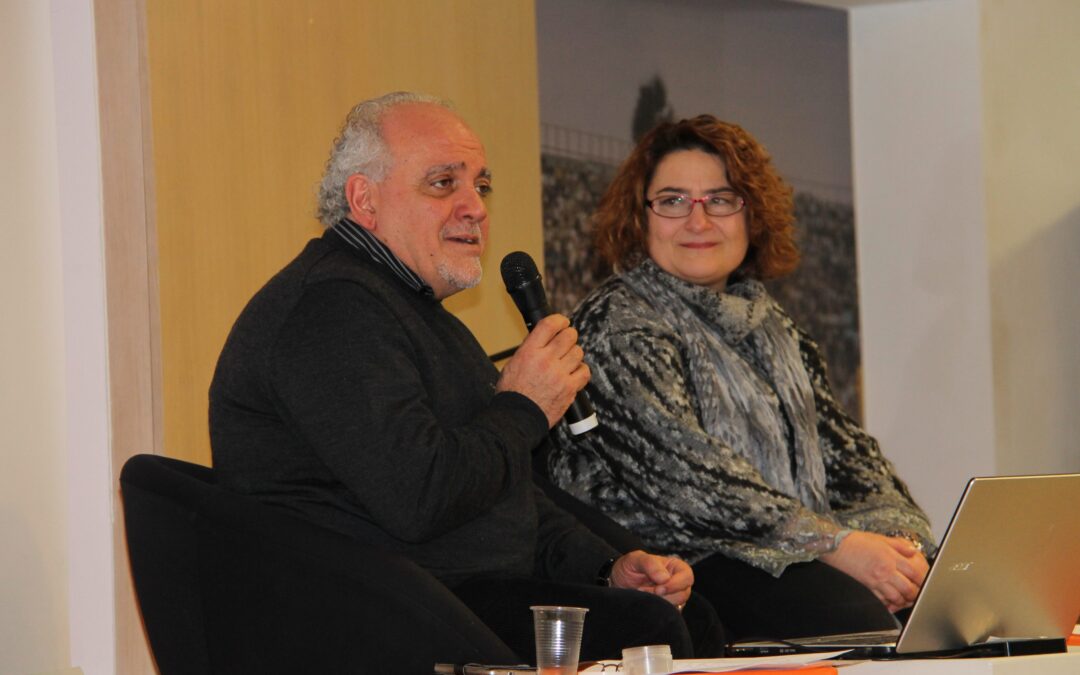
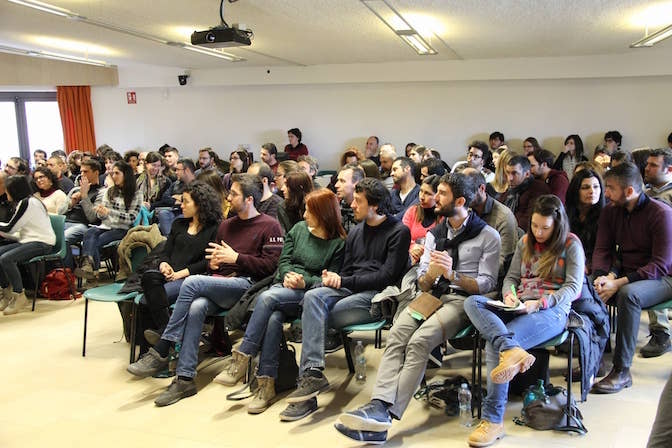 Should anyone have their doubts, they should watch some video from the past few days to re-find their faith. They would see people who still want a family, can make a serious commitment to a “forever love,” search for solid values and share them, and hold the deep, touching feelings that young people have. Here were the ingredients for a remarkable three-day event: 75 engaged couples, 11 families, a special place, an openness to look to the future and put it in play, sharing experiences and dreams, consulting with experts, and points of light from the words of Pope Francis and the spirituality of unity. The February 10–12 meeting brought engaged couples from all over Italy (with some representatives from Spain, England, Belgium and Serbia) to Loppiano, the Focolare little city near Florence. This was just one course in a program for young couples by the New Families Movement (part of the larger Focolare Movement) in Italy. The challenge taken up by the course organizers was not a simple one; the well-conceived program aimed to throw some light on the difficulties that come with living as a couple. Participants were able to take in a number of reflections, starting from the words of Chiara Lubich on the possibility that a couple could be “seeds of communion for the third millennium.”
Should anyone have their doubts, they should watch some video from the past few days to re-find their faith. They would see people who still want a family, can make a serious commitment to a “forever love,” search for solid values and share them, and hold the deep, touching feelings that young people have. Here were the ingredients for a remarkable three-day event: 75 engaged couples, 11 families, a special place, an openness to look to the future and put it in play, sharing experiences and dreams, consulting with experts, and points of light from the words of Pope Francis and the spirituality of unity. The February 10–12 meeting brought engaged couples from all over Italy (with some representatives from Spain, England, Belgium and Serbia) to Loppiano, the Focolare little city near Florence. This was just one course in a program for young couples by the New Families Movement (part of the larger Focolare Movement) in Italy. The challenge taken up by the course organizers was not a simple one; the well-conceived program aimed to throw some light on the difficulties that come with living as a couple. Participants were able to take in a number of reflections, starting from the words of Chiara Lubich on the possibility that a couple could be “seeds of communion for the third millennium.” 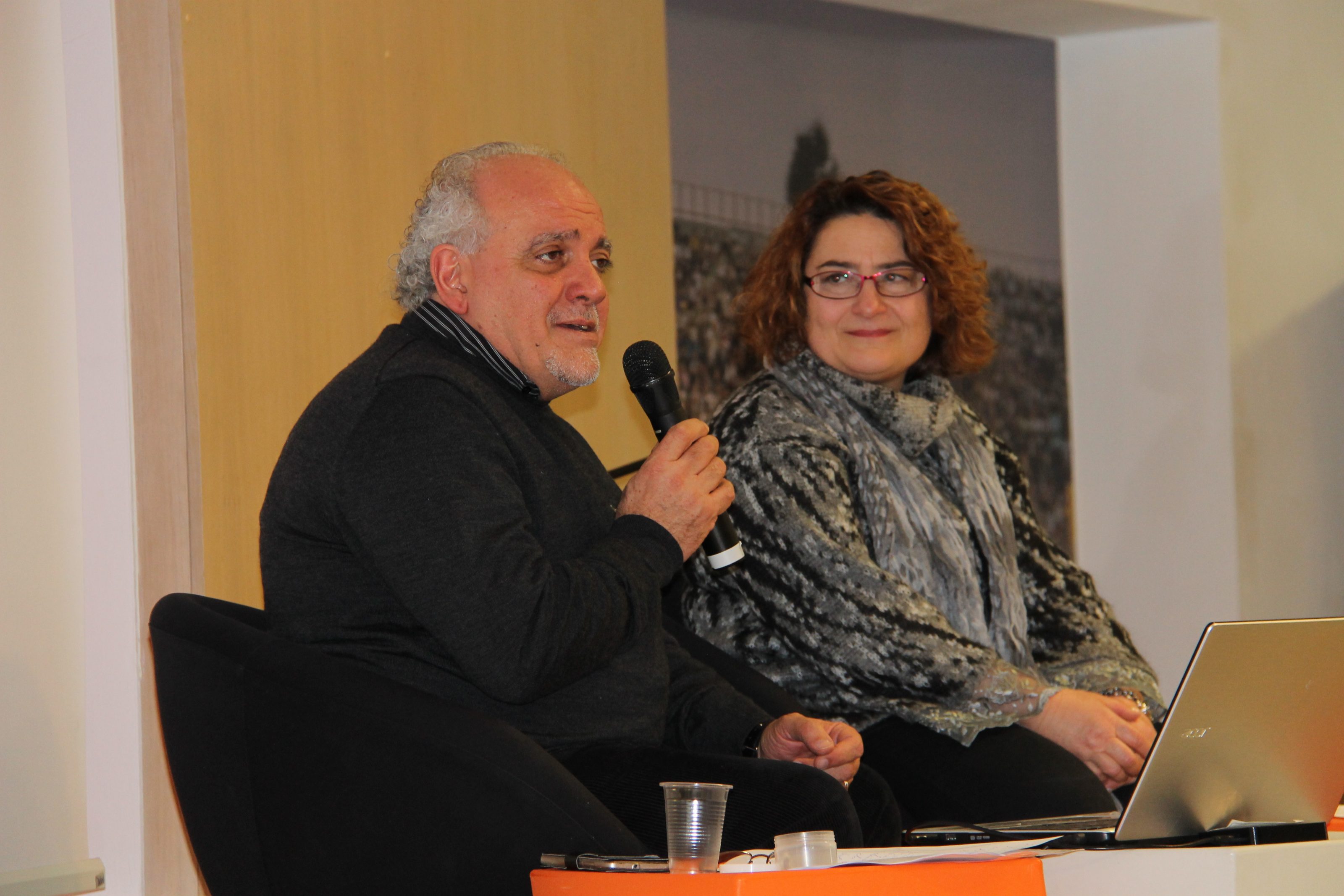 Experts covered themes such as engagement, the sacrament of marriage and family life. Among them were Rino and Rita Ventriglia, neurologist-psychotherapist and gynecologist-sex specialist; the Vacchers, a married couple from the Forum delle Associazioni Familiari of Treviso; theologian Father Stefano Isolan; and psychologist Inaki Guerrero. These topics were enriched by experiences from the experts and some of the families hosting the event. Experiences particularly resonated from a number of international families attending a course at Loppiano’s Loreto School for a few months. Their stories of a lifestyle that is simple, Gospel-inspired, and full of faith in God’s providence showed that it could be widely imitated and accessible to many. There were many opportunities for exchange and dialogue, both for each couple and with other participants. There were also special evenings that included a romantic dinner, a festive paella and a tour of the little city. By the end of the three days, it became hard to leave, for everyone to return to their cities. Many people’s impressions, other than a deep joy, were to have experienced something fundamental, both personally and as a couple. Many said they found new energy and tools to build a future on solid foundations, and to give the world a taste of the beauty that it is to be family. Source: Famiglie Nuove online
Experts covered themes such as engagement, the sacrament of marriage and family life. Among them were Rino and Rita Ventriglia, neurologist-psychotherapist and gynecologist-sex specialist; the Vacchers, a married couple from the Forum delle Associazioni Familiari of Treviso; theologian Father Stefano Isolan; and psychologist Inaki Guerrero. These topics were enriched by experiences from the experts and some of the families hosting the event. Experiences particularly resonated from a number of international families attending a course at Loppiano’s Loreto School for a few months. Their stories of a lifestyle that is simple, Gospel-inspired, and full of faith in God’s providence showed that it could be widely imitated and accessible to many. There were many opportunities for exchange and dialogue, both for each couple and with other participants. There were also special evenings that included a romantic dinner, a festive paella and a tour of the little city. By the end of the three days, it became hard to leave, for everyone to return to their cities. Many people’s impressions, other than a deep joy, were to have experienced something fundamental, both personally and as a couple. Many said they found new energy and tools to build a future on solid foundations, and to give the world a taste of the beauty that it is to be family. Source: Famiglie Nuove online
https://vimeo.com/207262255

 Every 14 March, the death anniversary of Chiara Lubich is for the Focolare communities an occasion to get together, celebrate, bear witness, and renew their commitment. This event will be echoed worldwide also in 2017, from Singapore to Vilnius (Lithuania), Sydney (Australia) to Houston (USA), and Manaus (Brazil) to Bujumbura (Burundi). It will be a sort of constellation that will literally embrace the world and revive Chiara’s testament to «Be a family.» The theme that will be taken up this year is precisely that of the family, against the background of the dynamics opened by the Bishop’s Synod and subsequent apostolic exhortation Amoris laetitia of Pope Francis. Chiara saw the family as a «seed of communion for humanity of the third millennium,» as she said in her message at the Family fest of 1993, in the hope that «the inherent values that are part of its nature – gratuitousness, spirit of service, and reciprocity – may be transferred to the entire human family.» It is in this light that we can interpret the initiatives that will be undertaken throughout 2017 in various parts of the world. The finality is to gather the pathway of life and ideas during the 50 years of the New Family Moviment, and uphold the anthropological and universal value of the families in the perspective of the “human family.” The first meeting on the theme The family as a source of hope and joy was held in Cairo, Egypt, with over 300 participants: a programme of joy and testimonials, which evidenced the leading role of the youth and relationships between the generations in families. The event in Panama Being a family always took place on 12 February: in a society characterised by fast-paced activities, over 400 people decided to meet in the city park for a day of dialogue, games and walks. An event with a global atmosphere will take place in the international town of Loppiano (Italy), from 10 to 12 March 2017, with the participation of families from all five continents. The main highlights will be the activities on Saturday, 11 March, which will be aired in live streaming (from 3 – 6 pm). See the press release and the news: Chiara Lubich and the Family 2017 Live streaming from Loppiano: http://live.focolare.org/FamilyHighlights
Every 14 March, the death anniversary of Chiara Lubich is for the Focolare communities an occasion to get together, celebrate, bear witness, and renew their commitment. This event will be echoed worldwide also in 2017, from Singapore to Vilnius (Lithuania), Sydney (Australia) to Houston (USA), and Manaus (Brazil) to Bujumbura (Burundi). It will be a sort of constellation that will literally embrace the world and revive Chiara’s testament to «Be a family.» The theme that will be taken up this year is precisely that of the family, against the background of the dynamics opened by the Bishop’s Synod and subsequent apostolic exhortation Amoris laetitia of Pope Francis. Chiara saw the family as a «seed of communion for humanity of the third millennium,» as she said in her message at the Family fest of 1993, in the hope that «the inherent values that are part of its nature – gratuitousness, spirit of service, and reciprocity – may be transferred to the entire human family.» It is in this light that we can interpret the initiatives that will be undertaken throughout 2017 in various parts of the world. The finality is to gather the pathway of life and ideas during the 50 years of the New Family Moviment, and uphold the anthropological and universal value of the families in the perspective of the “human family.” The first meeting on the theme The family as a source of hope and joy was held in Cairo, Egypt, with over 300 participants: a programme of joy and testimonials, which evidenced the leading role of the youth and relationships between the generations in families. The event in Panama Being a family always took place on 12 February: in a society characterised by fast-paced activities, over 400 people decided to meet in the city park for a day of dialogue, games and walks. An event with a global atmosphere will take place in the international town of Loppiano (Italy), from 10 to 12 March 2017, with the participation of families from all five continents. The main highlights will be the activities on Saturday, 11 March, which will be aired in live streaming (from 3 – 6 pm). See the press release and the news: Chiara Lubich and the Family 2017 Live streaming from Loppiano: http://live.focolare.org/FamilyHighlights
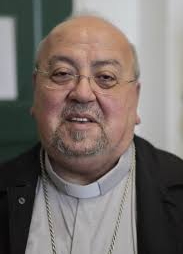
 A large group of Catholic Bishop-friends of the Focolare are currently having their convention on March 7-12 at the Mariapolis Centre in Castelgandolfo (Italy). They come from a significant collection of countries, including a good 26 from African and the Middle East. Among them is also Maronite Archbishop Samir Nassar from Damascus whom was asked to tell us about his country. Archbishop Nassar, after six years of war, what does Syria look like today? It’s an immense site of ruins. Apocalyptic scenes – burned out buildings, homes burned to the ground, ghost towns, villages razed to the ground. More than 2 million Syrians (50% of the population) don’t have a roof over their heads. Many Syrians – in the millions – have left their country, forming the largest mass of refugees since World War II. And now they’re stuck in refugee camps waiting for someone to notice them. Others drowned escaping, or are lined up in front of embassies like nomads in search of a country to that will take them in. Life for Syrians, wherever they may be, has turned into a torment. The family, the cornerstone of the Church and of the nation, is seriously shaken. It’s now rare to find a complete family, and the few that have stayed are completely deprived of support, buried in misery, in anguish and depression. Fiancés can’t marry because they’re separated by the mobilisation of the military, and the lack of housing does the rest. Their future hopes have all crumbled. In your opinion, who are the most vulnerable? The children are the ones who are most at risk. They are paying dearly for this merciless violence. UNESCO reports that more than 3 million Syrian children are not in school, which is also due to the priority of staying alive. The few schools that are operating are over-crowded, and the level of instruction is suffering because of the exodus of teachers. The psychological support centres are hopelessly overwhelmed by the huge numbers and by the types of psychological blocks that that mostly the children suffer from. One of the concerns for the Church is the exodus of Christians… The parishes are reporting a drastic drop in the number of faithful, and of pastoral activity. The Church of Damascus has seen one third of its priests (27 priests), a hard blow that weakens even more the declining role of the Christian minority. The priests who stay don’t feel safe and try to find ways to leave. Meanwhile, they offer themselves as socio-humanitarian workers for families. What is life like for Syrians today? Syrians don’t run after freedom anymore. Every day is a struggle to find bread, water, gas and oil that are becoming scarcer and scarcer. The frequent and prolonged electrical outages bring melancholy and dwindling social life. The search for scattered brothers and sisters, parents and friends is done discretely and in much distress. Finding a small dwelling place, any kind of refuge for living in has become the impossible dream of every family, especially young couples. The Syrian people is living this torment in great bitterness, which can be seen in the silent gazes and the tears. Lent 2017 offers all of us an opportunity for profound reflection on the commitment of the Church that wishes to be beside our faithful in the trial of this journey towards the Risen Lord, who said: ‘Come to me, all who are burdened and oppressed…” (Mt 11:28). What urged you to get yourself to this meeting with other bishops? Ever since 2008 I found in the Focolare a type of listening and dialogue that helps me to accept my episcopal solitude and physical isolation in a country at war. In these gatherings at Castel Gandolfo I experience a discreet, respectful fraternal acceptance, an atmosphere and spiritual tone that nourishes my soul and confirms the spirit. An oasis of friendship, of mission and of renewal.
A large group of Catholic Bishop-friends of the Focolare are currently having their convention on March 7-12 at the Mariapolis Centre in Castelgandolfo (Italy). They come from a significant collection of countries, including a good 26 from African and the Middle East. Among them is also Maronite Archbishop Samir Nassar from Damascus whom was asked to tell us about his country. Archbishop Nassar, after six years of war, what does Syria look like today? It’s an immense site of ruins. Apocalyptic scenes – burned out buildings, homes burned to the ground, ghost towns, villages razed to the ground. More than 2 million Syrians (50% of the population) don’t have a roof over their heads. Many Syrians – in the millions – have left their country, forming the largest mass of refugees since World War II. And now they’re stuck in refugee camps waiting for someone to notice them. Others drowned escaping, or are lined up in front of embassies like nomads in search of a country to that will take them in. Life for Syrians, wherever they may be, has turned into a torment. The family, the cornerstone of the Church and of the nation, is seriously shaken. It’s now rare to find a complete family, and the few that have stayed are completely deprived of support, buried in misery, in anguish and depression. Fiancés can’t marry because they’re separated by the mobilisation of the military, and the lack of housing does the rest. Their future hopes have all crumbled. In your opinion, who are the most vulnerable? The children are the ones who are most at risk. They are paying dearly for this merciless violence. UNESCO reports that more than 3 million Syrian children are not in school, which is also due to the priority of staying alive. The few schools that are operating are over-crowded, and the level of instruction is suffering because of the exodus of teachers. The psychological support centres are hopelessly overwhelmed by the huge numbers and by the types of psychological blocks that that mostly the children suffer from. One of the concerns for the Church is the exodus of Christians… The parishes are reporting a drastic drop in the number of faithful, and of pastoral activity. The Church of Damascus has seen one third of its priests (27 priests), a hard blow that weakens even more the declining role of the Christian minority. The priests who stay don’t feel safe and try to find ways to leave. Meanwhile, they offer themselves as socio-humanitarian workers for families. What is life like for Syrians today? Syrians don’t run after freedom anymore. Every day is a struggle to find bread, water, gas and oil that are becoming scarcer and scarcer. The frequent and prolonged electrical outages bring melancholy and dwindling social life. The search for scattered brothers and sisters, parents and friends is done discretely and in much distress. Finding a small dwelling place, any kind of refuge for living in has become the impossible dream of every family, especially young couples. The Syrian people is living this torment in great bitterness, which can be seen in the silent gazes and the tears. Lent 2017 offers all of us an opportunity for profound reflection on the commitment of the Church that wishes to be beside our faithful in the trial of this journey towards the Risen Lord, who said: ‘Come to me, all who are burdened and oppressed…” (Mt 11:28). What urged you to get yourself to this meeting with other bishops? Ever since 2008 I found in the Focolare a type of listening and dialogue that helps me to accept my episcopal solitude and physical isolation in a country at war. In these gatherings at Castel Gandolfo I experience a discreet, respectful fraternal acceptance, an atmosphere and spiritual tone that nourishes my soul and confirms the spirit. An oasis of friendship, of mission and of renewal.